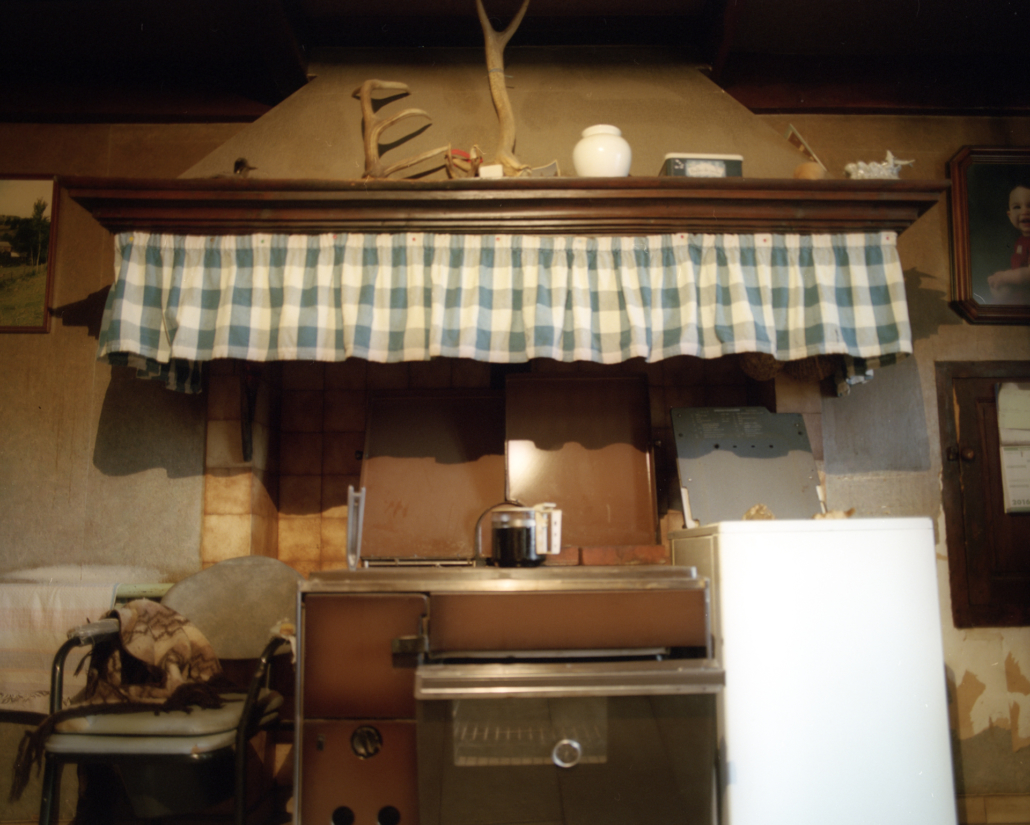IN THE PAST, RIGHT UP TO THE END
This post is also available in:
 French
French
Louis and his sister live at La Croix de Cors, near Padiès, a town in the Tarn in southwestern France. They are the only people living here. Not far from there, at Carrade to be precise, lives Gilbert Nègre, born in 1932, and just a little further on, in a place known as Champ d’Albi, live his “young” neighbour – Jean-Pierre Bouyssie, born in 1967, and Denise Massol, born in 1938 and deceased in 2018.
All of these places, hamlets like Ginals, where Odile Puech and her dog Dick lived up until recently, evoke memories of a way of life that harks back to times past.
Who remembers that only a few decades ago more than a hundred fires burned in the hearths of Padiès and that there were as many as seventy children at the school? A village was a society in itself, and the countryside was teeming with various tradesmen such as wheelwrights, saddlers, carpenters, blacksmiths, cobblers, coopers….
Today, these are the little corners of the world that underscore the end of a world. This work looks at the exodus from these hitherto bustling centres of activity, and at the isolation and loneliness that ensue.
The ruins of an old farmhouse and outhouses located in Padiès, a place in the Tarn in southwestern France, appear every December when the Saint-Géraud dam, built in 1992, is opened to allow the level of the river Cérou to drop. Amongst the rocks you can make out the remains of a wood oven which was still running sixty years ago. It is easy to imagine how life must have been here. But that now is all in the past.
“– This is where the vegetable garden was…” says Louis.
He points to an area bounded by low stone walls which are still intact, and then, looking a little to the right, shows what it is left of the cowshed.
“– One day, a cobbler stopped by this house where my parents lived,” he said. “I must have been about 5 years old, it was just after the War. My father went off with him one morning to choose a tree in the forest, often it would be an alder as the wood is lighter. The cobbler would make clogs for the whole family out of the one trunk, in exchange for lodgings and a little money. During cold weather, we would put embers in our clogs to heat them up…
Nowadays you see a lot of dead wood and fallen trees in the forests. It is sad to see the state of the oak, horse chestnut and alder trees. The trees are dying off. In the olden days we used to say ‘he’s as hardy as an oak’”.
“– In the past, we gave the cows a name: Pompom, Ginger, Little Fig. Now they just have a number, they go off to the abattoir, to the scrap yard. A bullet in the head and they finish up on a meat hook.”
“– Back then, you went to school on foot by the tracks through the woods, with a bowl for soup in your hand and a few chestnuts in your pockets. More than a hundred fires burned in the hearths of Padiès and there were as many as seventy children at the school. The countryside was teeming with various tradesmen such as wheelwrights, saddlers, carpenters, blacksmiths, cobblers, coopers… A village was a society in itself, but now it is made up mainly of holiday homes, large farms and occasionally a few stately homes falling into ruin.”
Louis now lives a little higher up La Croix de Cors, with his sister. They are the only people living here. Not far from there, at Carrade to be precise, lives Gilbert Nègre, born in 1932, and just a little further on, in a place known as Champ d’Albi, lives Denise Massol, born in 1938, as well as Jean-Pierre Bouyssie, a “young” neighbour, born in 1967. All of these places, hamlets like Ginals, where Odile Puech and her dog Dick lived up until recently, evoke memories of a way of life that harks back to times past.
That was back then.
Loïc Trujillo
OPENING WEDNESDAY JUNE 9th FROM 4:00 PM TO 8:00 PM
Mask compulsory and compliance with barrier measures!
From 09/06/2021 to 10/07/2021
Galerie FAIT & CAUSE
58 rue Quincampoix
75004 PARIS
France
Opening hours : Wednesday to Saturday 1:30 p.m. to 6:30 p.m.
Phone : 01 42 74 26 36
sophot@outlook.com
www.sophot.org



